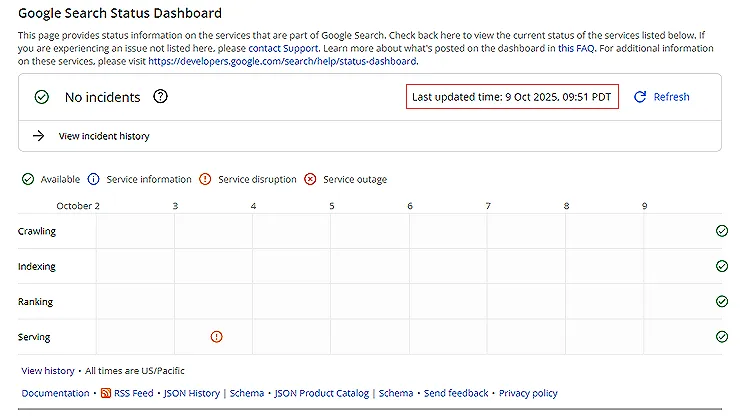Can’t find your website in search results? You’re not alone. Millions of sites struggle to carve out space for themselves on search engines. If your current traffic is low, you might be wondering if that’s hurting your chances of moving up the ranks.
Although the total amount of traffic isn’t going to influence your search rankings, traffic does play a significant role in where your website appears in search results. According to SEMrush’s ranking factors research study, key factors such as direct website visits, time on site, and pages per session are crucial. This means the quality of your traffic and how users interact with your site are more important than sheer numbers alone.
Let’s dive into how these factors affect your search engine optimization (SEO). Direct traffic, which includes visits without a referring website, signals to Google that your domain has high authority and value. Tracking engagement metrics like time on site and pages per session further helps in understanding the user experience and content relevance. A low bounce rate indicates that your website effectively meets user needs, enhancing your ranking prospects.
Referral traffic also plays a pivotal role. This traffic comes from links on other websites, driving users to your domain. Growing your referral links through strategies like guest blogging and reaching out to content creators can boost your SEO by increasing the number of referring domains and follow backlinks.
Ensuring that your website offers relevant, engaging content with clear navigation can improve these ranking factors. SEO Tools and techniques used INTELLIPLANS can help diagnose SEO issues and monitor your website’s performance. By focusing on both the quality and sources of your traffic, you can better position your site in search results, ultimately improving your online presence and achieving your business goals.
Understanding the Role of Traffic in SEO
When it comes to search engine optimization (SEO), the role of traffic is often misunderstood. While it’s tempting to focus solely on the sheer volume of visitors to your site, quality traffic is far more critical for improving your search rankings. SEMrush’s research has highlighted several key factors—direct website visits, time on site, and pages per session—that are paramount in determining your position in search results. These factors, in essence, signify user engagement and satisfaction, which are crucial indicators to search engines like Google.
Direct traffic, in particular, serves as a strong signal of your website’s authority. Visits that come without a referring website—be it employees directly accessing the site, customers revisiting their bookmarks, or users entering the URL manually—suggest to Google that your domain holds value. High levels of direct traffic demonstrate brand recognition and user trust, thereby enhancing your chances of ranking higher.
Moreover, understanding and analyzing user behavior on your site can provide significant insights. Metrics such as time on site and pages per session help you gauge the relevance and engagement of your content. If users stay longer and browse multiple pages, it indicates satisfaction and value in your content, positively influencing your SEO. Conversely, a high bounce rate, where visitors leave after viewing just one page, signals low relevance or poor user experience, potentially harming your rankings.
Referral traffic also plays an essential role in boosting your site’s SEO. Links from credible sources and other websites drive relevant visitors and signal to search engines that your content is trusted and authoritative. Building a network of referring domains and obtaining follow backlinks can significantly enhance your search rankings. By focusing on both the quality and the sources of your traffic, you align your SEO strategy with the factors that search engines prioritize, positioning your site for better visibility and success in search results.
Why Traffic Matters
The significance of traffic in your SEO strategy cannot be overstated. While it might be tempting to chase higher visitor numbers, the true measure of value lies in the quality of that traffic. High-quality traffic—visitors who are genuinely interested in your content and engage with it meaningfully—has a direct impact on several critical ranking factors identified by SEMrush. These factors include direct website visits, average time on site, and pages per session, all of which reflect user satisfaction and engagement.
Direct traffic, for instance, signals to Google that your site is authoritative and trustworthy. Engagement metrics like time on site indicate whether visitors find your content valuable, with longer visits suggesting that your content meets their needs. Pages per session can further highlight the depth of user interaction, implying that your website offers easily accessible and engaging information. Conversely, a high bounce rate, where users leave after viewing only one page, can be a red flag indicating poor user experience or irrelevant content.
In essence, the quality of your traffic is a crucial determinant of your search engine rankings. By focusing on attracting and retaining a genuinely interested audience, you can improve these metrics and bolster your SEO performance. Understanding why traffic matters and optimizing your website accordingly will set the foundation for sustained online success.
Top Ranking Factors
Understanding the top ranking factors is essential for optimizing your SEO strategy effectively. According to SEMrush’s comprehensive research, seventeen key factors influence your website’s position in search engine results. Among these, the most critical are direct website visits, time on site, and pages per session. These factors are indicative of user engagement and satisfaction, which search engines prioritize highly.
Direct website visits stand out as the most influential factor. This type of traffic comes from users entering your website’s URL directly, showing Google that your site holds significant authority and value. High levels of direct traffic often correlate with robust brand recognition and user trust.
Time on site, another significant ranking factor, measures how long visitors stay on your website. Longer visits suggest that your content is valuable and engaging, meeting the search needs of users. On the flip side, shorter visits may indicate that your content is not resonating with your audience or that the user experience is lacking.
Pages per session is equally important, reflecting how many different pages a user views during a visit. High pages per session imply that your website offers compelling content and intuitive navigation, encouraging users to explore further. Conversely, low pages per session can highlight gaps in content relevance or site usability.
Additional influential factors include the number of referring domains and total follow backlinks, signaling the importance of a robust link-building strategy. Referring domains and backlinks from authoritative sites enhance your domain’s credibility in the eyes of search engines, leading to higher rankings.
By understanding and leveraging these top-ranking factors, you can refine your SEO strategy to focus on quality traffic and user engagement, thereby improving your chances of securing a prominent position in search engine results.
Direct Traffic: The King of Ranking Factors
Direct traffic is widely considered the king of ranking factors in the realm of search engine optimization (SEO). As per the SEMrush study, direct website visits hold the most weight among all ranking factors. Direct traffic encompasses visits to your website without a referring link, such as users typing your URL directly into their browser, accessing your site via bookmarks, or clicking on links from non-search engine sources like emails or untracked mobile traffic.
What makes direct traffic so crucial is its implication of strong brand authority and user trust. When a significant number of users are visiting your website directly, it signals to search engines like Google that your domain is both authoritative and valuable. This form of traffic typically stems from successful brand recognition efforts and indicates a loyal user base.
Furthermore, direct traffic can significantly impact other critical SEO metrics such as time on site and pages per session. Users coming directly to your site are often more engaged and are likely to spend more time exploring your content. This not only enhances user experience but also signals to search engines that your website is meeting user needs effectively, thereby improving your search rankings.
In essence, focusing on growing your direct traffic should be an integral part of your SEO strategy. Building a strong brand image and maintaining high levels of user engagement will not only increase your direct traffic but also enhance other vital SEO metrics, positioning your website favorably in search engine results.
What is Direct Traffic?
Direct traffic is a key element in the landscape of search engine optimization (SEO). It refers to visits to your website where there is no referring source or medium that brought the user to your page. Traditionally, direct traffic was attributed to users manually entering your website’s URL into their browser or accessing the site through bookmarks. However, the concept has evolved and now includes traffic from various other sources such as links in untracked emails, mobile apps, and software, links from unsecured (HTTP) sites, and even internal traffic from employees.
Understanding direct traffic is crucial because it often signifies strong brand recognition and a loyal audience base. When users consistently visit your site directly, it sends a powerful signal to search engines like Google that your website holds authority, relevance, and value. This, in turn, can positively influence your rankings in search engine results pages (SERPs). Additionally, direct traffic is often correlated with other positive engagement metrics such as higher time on site and more pages per session, further enhancing your SEO performance.
Why Direct Traffic is Crucial
Direct traffic is essential in the realm of search engine optimization (SEO) due to its strong implications for your website’s authority and user trust. When users visit your site directly—by typing your URL into their browser, accessing it through bookmarks, or via untracked sources such as emails or mobile apps—it signals to search engines like Google that your domain is both valuable and authoritative. This form of traffic, which falls outside of typical referral sources, often stems from robust brand recognition and indicates a loyal user base.
Moreover, direct traffic is frequently correlated with positive engagement metrics, such as higher time on site and more pages per session. These metrics suggest that users who visit your site directly are more engaged and find your content relevant and valuable. As they explore multiple pages and spend substantial time on your site, they send strong signals to search engines about the quality and usefulness of your content. This, in turn, enhances your search rankings and visibility in search engine results pages (SERPs).
Incorporating strategies to grow direct traffic should therefore be a priority in your SEO efforts. Building a recognizable brand and fostering user loyalty will not only increase your direct traffic but also improve other critical SEO metrics. By focusing on these aspects, you can position your website more favorably in search results and achieve greater online success.
Quality Traffic Over Quantity
While it’s tempting to focus on the sheer volume of visitors to your website, quality traffic is far more critical when it comes to improving your search engine rankings. Search engines, particularly Google, prioritize user engagement and satisfaction over mere numbers. This means that attracting visitors who are genuinely interested in your content and who interact meaningfully with your site is paramount for SEO success.
Key engagement metrics such as time on site, pages per session, and bounce rate are indicators of the quality of your traffic. For instance, if users stay on your site for extended periods, it’s a sign that your content is relevant and engaging. Similarly, a higher number of pages per session indicates that your website is easy to navigate and that visitors find the information valuable enough to explore further. On the contrary, a high bounce rate, where users leave after viewing just one page, can signal irrelevant content or poor user experience, which can negatively impact your rankings.
Focusing on quality traffic involves creating content that is not only optimized for search engines but also tailored to meet the needs of your target audience. This approach helps in maintaining user engagement, thereby improving vital SEO metrics and enhancing your overall online presence. By prioritizing quality over quantity, you position your website for better visibility and long-term success in search results.
The Importance of Time on Site
Time on site is one of the most important metrics in evaluating your website’s effectiveness and its SEO impact. It measures how long visitors stay on your website during a single session. The longer the time spent, the better it is for your SEO, as it signals to search engines that users find your content valuable and engaging. This metric essentially reflects the relevance and quality of your content in addressing the search needs of your users.
High time on site indicates to search engines like Google that your website is providing meaningful and useful information to visitors, thereby fulfilling their search intent. Conversely, a low time on site may suggest that visitors are not finding what they are looking for, which could negatively affect your rankings. This makes it essential to create and curate content that is not only informative but also engaging.
Moreover, longer time on site often leads to more interactions such as clicking on internal links, viewing multiple pages, and possibly converting into customers or subscribers. Ensuring that your website is user-friendly and offers seamless navigation can help increase this metric. Incorporate multimedia elements like videos, infographics, and interactive content to captivate your audience and keep them engaged for longer periods.
In summary, optimizing your content and website design to enhance user experience can significantly improve the time users spend on your site. This, in turn, boosts your SEO performance by sending positive signals to search engines about the quality and relevance of your content.
Pages Per Session: An Indicator of Engagement
Pages per session is a critical metric in understanding user engagement on your website. This metric measures the average number of pages that users view during a single session. High pages per session indicate that visitors find your website engaging and are motivated to explore more content. According to SEMrush, websites that rank higher in search results generally have more pages viewed per session. This is because visitors who interact with multiple pages tend to find the information useful and the navigation intuitive, signaling to search engines like Google that the site provides valuable content.
Conversely, low pages per session can highlight areas where your website might be falling short. This could be due to confusing navigation, irrelevant content, or a poor overall user experience. Improving this metric involves ensuring your website is easy to navigate and offers engaging, relevant content that encourages users to click through to additional pages. Incorporating clear calls to action, internal linking, and well-organized information architecture can help retain user interest and boost pages per session.
By focusing on increasing pages per session, you not only enhance user engagement but also improve key SEO metrics. This effort aligns your website with search engines’ emphasis on user experience and relevance, thereby positioning your site more favorably in search results. Ultimately, a higher pages per session metric can contribute significantly to achieving your SEO goals and enhancing your online presence.
Bounce Rate and Its Implications
Bounce rate is a critical metric that reflects the percentage of visitors who leave your website after viewing only a single page. A high bounce rate can be an indicator of various issues that may harm your site’s search engine optimization (SEO). For instance, it might suggest that your content is not adequately aligning with user expectations or that your website’s navigation is confusing and lacks engagement elements. According to SEMrush, a lower bounce rate typically corresponds with higher search rankings, meaning that users find the site relevant and useful enough to explore multiple pages.
Understanding and managing your bounce rate is vital for improving user experience and, subsequently, your SEO performance. If your bounce rate is high, it could be due to several factors, such as:
- Irrelevant content that does not meet user search intent
- Poor website design and confusing navigation
- Slow loading times that frustrate users
- Lack of engaging elements like compelling calls to action or interactive content
To reduce your bounce rate, focus on optimizing your website for user engagement. Ensure that your content is relevant and tailored to meet the needs of your target audience. Improve your site’s navigation to make it easy for visitors to find what they are looking for. Additionally, enhance your page load speeds and incorporate multimedia elements such as videos and infographics to keep users engaged.
By addressing the factors that contribute to a high bounce rate, you not only improve user experience but also send positive signals to search engines about the quality and relevance of your website. This can significantly enhance your SEO metrics, positioning you higher in search engine results pages (SERPs) and ultimately driving more qualified traffic to your site.
The Power of Referral Traffic
Referral traffic is a vital component in boosting your site’s search engine optimization (SEO) and overall online visibility. This type of traffic consists of visitors who arrive at your website through links on other websites, rather than directly or through a search engine. Referral traffic can come from various sources such as partner sites, online directories, blog posts, or articles. It plays a crucial role in diversifying your traffic sources and enhancing the credibility of your domain.
One of the primary benefits of referral traffic is that it often brings highly targeted visitors to your site. These users are likely to be interested in your content because they came across your link on a related or authoritative site. This increases the likelihood of engagement, longer time on site, and more pages viewed per session—all significant factors that positively impact your SEO.
Moreover, referral traffic signals to search engines that your website is trusted and valued by other reputable sites. This can lead to higher rankings in search engine results pages (SERPs). Building a robust network of referral links can boost the number of referring domains and follow backlinks, further strengthening your site’s authority and SEO profile.
To maximize the benefits of referral traffic, consider strategies like guest blogging, collaborating with influencers, and getting listed in relevant online directories. Reach out to content creators in your industry to establish partnerships that could lead to mutual backlinking opportunities. Additionally, ensure that your content is shareable and engaging, making it attractive for other websites to link to it.
By focusing on generating high-quality referral traffic, you not only improve your SEO metrics but also set the stage for sustained online growth and success. Leveraging referral traffic effectively can position your website as an authoritative source in your industry, driving both visibility and user engagement.
Building Referral Links
Building referral links is a crucial aspect of enhancing your website’s search engine optimization (SEO) and increasing its visibility. Referral links involve having other websites link back to your domain, which not only drives targeted traffic but also signals to search engines like Google that your website is trustworthy and authoritative. The more quality referral links you have, the better your chances are of achieving higher search engine rankings.
To start building referral links, consider implementing a few key strategies:
- Guest Blogging: Writing guest posts for reputable blogs in your industry can help you gain valuable backlinks. Ensure that the content is relevant and offers value to the readers of the host blog.
- Collaborating with Influencers: Partnering with influencers who have a strong following can also bring high-quality referral traffic to your website. Influencers can share your content or mention your website in their posts, driving their audience to your site.
- Online Directories: Getting listed in relevant online directories can also help in gaining referral links. Choose directories that are respected within your industry to enhance your credibility.
- Mutual Backlinking: Establish partnerships with other content creators or businesses in your field to mutually share backlinks. Make sure these partnerships are authentic and relevant to your audience.
Engaging content that encourages shares and mentions can naturally attract referral links as well. Articles, infographics, videos, and other forms of compelling content can be particularly effective. Make sure to monitor your referral traffic regularly using tools like SEMrush to analyze the impact of your efforts and refine your strategies accordingly.
Incorporating these practices can significantly boost your website’s referral traffic, thereby enhancing your overall SEO performance. By focusing on building high-quality referral links, you not only improve your search engine rankings but also establish your website as an authoritative source in your industry.
Understanding Referring Domains and IPs
In the landscape of search engine optimization (SEO), understanding referring domains and IPs is crucial for improving your site’s visibility and authority. Referring domains are websites that link back to your domain. The more referring domains you have, especially from authoritative and high-quality websites, the more it signals to search engines that your content is valuable and trustworthy. This, in turn, can significantly boost your rankings in search engine results pages (SERPs).
On the other hand, referring IPs refer to the unique IP addresses from which these backlinks originate. A high number of referring IPs indicates that your backlinks are coming from a diverse range of sources. This diversity is important because it shows search engines that your content is widely recognized and endorsed across different networks, further enhancing your domain’s credibility.
Both referring domains and referring IPs play interrelated roles in bolstering your SEO performance. While a single domain might link to your website multiple times, having backlinks from different IP addresses adds another layer of trustworthiness. Search engines like Google are keen on these metrics because they help differentiate between genuine endorsements and manipulative link-building practices.
To maximize the benefits of referring domains and IPs, focus on creating high-quality, shareable content that attracts organic backlinks. Engage in strategies such as guest blogging, influencer partnerships, and being listed in reputable directories to broaden your backlink profile. Regularly monitor your referring domains and IPs using tools like SEMrush to track your progress and refine your strategies.
By understanding and effectively utilizing referring domains and IPs, you can enhance your website’s credibility and achieve better search engine rankings, driving more organic traffic to your site.
The Role of Backlinks
Backlinks are a cornerstone of effective search engine optimization (SEO) strategies, serving as critical indicators of a website’s authority and credibility to search engines like Google. Essentially, a backlink is a hyperlink from an external site that points to your website. The more high-quality backlinks you have, particularly from reputable and authoritative websites, the more it signals to search engines that your content is valuable and authoritative. This leads to improved rankings in search engine results pages (SERPs).
Quality, rather than quantity, is key when it comes to backlinks. A few backlinks from high-authority sites can be far more beneficial than numerous links from less reputable sources. These high-quality backlinks serve as endorsements of your content, suggesting to search engines that your website is a trustworthy and valuable resource.
Additionally, follow backlinks, which are hyperlinks that allow search engines to follow the link back to your site, hold more weight compared to no-follow backlinks. No-follow backlinks, while still useful for driving traffic, do not confer the same SEO benefits as follow backlinks. Therefore, as you develop your link-building strategy, it’s important to focus on acquiring follow backlinks from authoritative domains.
To acquire these valuable backlinks, consider strategies such as guest blogging, where you write articles for other blogs in your industry and include links back to your site. Building relationships with industry influencers can also provide opportunities for mention and backlinks. Additionally, creating high-quality, shareable content like infographics, research, and comprehensive guides can naturally attract backlinks over time.
Monitoring and analyzing your backlink profile using tools like SEMrush can help you understand the quality and impact of your backlinks. This allows for continuous refinement of your link-building strategies, ensuring they remain effective and aligned with best SEO practices.
Ultimately, backlinks are an essential component of any robust SEO strategy. By securing high-quality backlinks and monitoring their effectiveness, you can significantly enhance your website’s authority and search engine ranking, driving more organic traffic and achieving your digital marketing goals.
Optimizing Your Website Traffic
Optimizing your website traffic is a multifaceted endeavor that requires a strategic approach to ensure that the visitors to your site are both numerous and engaged. Understanding the sources and behaviors of your current traffic is crucial in achieving this goal. Start by assessing where your traffic is coming from—whether it’s direct, organic, or referral traffic. Each type of traffic provides different insights and opportunities for optimization. For instance, direct traffic signifies strong brand recognition, while organic traffic indicates effective keyword usage, and referral traffic points to the success of external link-building efforts.
Once you’ve assessed your current traffic, implementing effective SEO strategies becomes paramount. Focus on key engagement metrics like time on site, pages per session, and bounce rate to identify areas for improvement. Ensuring that your content is relevant, engaging, and easy to navigate can significantly enhance the user experience, thereby positively impacting these metrics. Incorporating multimedia elements such as videos and infographics can also help in retaining visitor interest and boosting engagement.
Utilizing tools like SEMrush can further aid in diagnosing any SEO issues and monitoring your website’s performance. These tools provide comprehensive insights into various SEO metrics, helping you pinpoint specific areas that require attention. By leveraging such analytics, you can refine your strategies to target the right audience, improve your site’s visibility, and achieve better search engine rankings.
Moreover, partnering with a digital solutions provider like INTELLIPLANS can elevate your efforts. With expertise in website design, maintenance, hosting, SEO services, and digital marketing, INTELLIPLANS offers a holistic approach to building and enhancing your online presence. Collaborating with professionals ensures that your website is optimized not only for search engines but also for user experience, helping your small business grow and thrive in the digital landscape.
Assessing Current Traffic Sources
Understanding where your website traffic originates is a crucial first step towards optimizing your search engine optimization (SEO) strategy. By analyzing the various sources of your traffic—such as direct, organic, and referral traffic—you can gain valuable insights that inform your approach to improving both the quality and quantity of visitors to your site.
- Direct Traffic: This type of traffic comes from users who directly enter your website’s URL into their browser, access it through bookmarks, or click on untracked links from emails or software. High direct traffic indicates strong brand recognition and user trust.
- Organic Traffic: Visitors who find your website through search engines fall into this category. Analyzing organic traffic helps you understand how effective your keyword strategy is and how well your content matches users’ search queries.
- Referral Traffic: This traffic is generated from links on other websites, such as partner sites, directories, articles, or blog posts. High referral traffic suggests that your site is being recommended by authoritative sources, enhancing your credibility and SEO.
- Social Media Traffic: Users who visit your site via links on social media platforms are counted in this category. A strong social media presence can drive targeted visitors and improve overall engagement.
Once you’ve identified the sources of your traffic, focus on improving metrics such as time on site, pages per session, and bounce rate. Tools like SEMrush can help you monitor these metrics and diagnose any issues. Partnering with a digital solutions provider like INTELLIPLANS can further elevate your efforts, ensuring your website is optimized for both search engines and user experience. This holistic approach helps your small business grow and thrive in the competitive digital landscape.
Implementing Effective SEO Strategies
Effective implementation of SEO strategies is essential for enhancing your website’s visibility and driving quality traffic. The process begins with a thorough understanding of your current traffic sources and user behavior. By utilizing tools like SEMrush, you can gain valuable insights into key engagement metrics such as time on site, pages per session, and bounce rate. These metrics will help you identify areas needing improvement and thus refine your approach.
To boost your SEO performance, focus on creating high-quality, engaging content that meets the needs of your target audience. Start by identifying and integrating relevant keywords seamlessly into your content. Prioritize long-tail keywords that are less competitive but highly specific to your niche. Additionally, make sure your website’s content is fresh, informative, and regularly updated to retain user interest.
User experience plays a critical role in SEO success. Ensure your website is easy to navigate, with a clear structure that allows users to find the information they need effortlessly. Fast loading times, mobile responsiveness, and intuitive design are crucial elements that can significantly enhance user satisfaction and reduce bounce rates.
Boosting your website’s authority through backlinks is another effective strategy. Engage in guest blogging, collaborate with influencers, and participate in relevant online communities to build a robust network of referral links. High-quality, shareable content such as infographics, research reports, and interactive media can naturally attract backlinks from authoritative sources.
Moreover, optimizing your website for technical SEO is vital. Ensure that your site is secure (using HTTPS), free of duplicate content, and structured with proper metadata. Regularly audit your website to identify and fix any technical issues that may hinder its performance on search engines.
Lastly, leverage analytics tools to continuously monitor and refine your SEO strategies. Regularly track your website’s performance, analyze user behavior, and make data-driven decisions to enhance your approach. By focusing on comprehensive and effective SEO strategies, you can improve your website’s search engine rankings, drive quality traffic, and achieve sustained online success.
INTELLIPLANS: Your Partner in SEO Success
When navigating the complexities of search engine optimization (SEO), having a reliable partner can make all the difference. At INTELLIPLANS, we specialize in helping small businesses and nonprofits build and enhance their online presence with comprehensive digital solutions. Our expertise spans across various areas including website design, maintenance, and updates, website hosting, as well as robust SEO services. We understand that effective SEO is not just about attracting visitors; it’s about drawing quality traffic that engages with your content and aligns with your business objectives.
Our tailored digital marketing strategies encompass Pay-Per-Click (PPC), Search Engine Marketing (SEM), and social media marketing, ensuring your brand reaches the right audience. By employing these strategies, we aim to boost your online visibility and drive meaningful interaction from your target market. Leveraging tools like SEMrush, we provide in-depth analysis and data-driven insights to refine your SEO efforts continuously.
At INTELLIPLANS, our approach is holistic. We focus on optimizing user experience by ensuring easy navigation, fast loading times, and mobile responsiveness. Our goal is to create a seamless visitor experience that not only retains visitors but also converts them into loyal customers. Understanding the importance of engaging content, we work with you to develop compelling articles, videos, infographics, and more, designed to attract backlinks and enhance your domain authority.
Partnering with INTELLIPLANS means you get a dedicated team committed to helping your small business grow and thrive in the digital landscape. Let’s talk to see how we can help you achieve your business goals through effective SEO strategies and comprehensive digital solutions.
Who We Are
At INTELLIPLANS, we specialize in helping small businesses and nonprofits build and enhance their online presence through comprehensive digital solutions. Our expertise spans across various areas including website design, maintenance, and updates, website hosting, and robust SEO services. We understand the importance of not just attracting visitors but drawing quality traffic that engages with your content and aligns with your business objectives.
Our tailored digital marketing strategies encompass Pay-Per-Click (PPC), Search Engine Marketing (SEM), and social media marketing, ensuring your brand reaches the right audience. By employing these strategies, we aim to boost your online visibility and encourage meaningful interaction from your target market. Leveraging advanced tools like SEMrush, we provide in-depth analysis and data-driven insights to continuously refine your SEO efforts.
At INTELLIPLANS, our approach is holistic. We focus on optimizing the user experience by ensuring easy navigation, fast loading times, and mobile responsiveness. Our goal is to create a seamless visitor experience that not only retains visitors but also converts them into loyal customers. Engaging content is key, and we work with you to develop compelling articles, videos, and infographics designed to attract backlinks and enhance your domain authority.
Partnering with INTELLIPLANS means having a dedicated team committed to helping your small business grow and thrive in the digital landscape. Let’s talk to see how we can help you achieve your business goals through effective SEO strategies and comprehensive digital solutions.
Our Services
At INTELLIPLANS, we offer a comprehensive suite of digital solutions designed to help small businesses and nonprofits build and enhance their online presence, thereby maximizing operational efficiency and achieving their business goals. Our services span across various critical areas, ensuring a holistic approach to improving your digital footprint.
- Website Design: We create visually appealing and user-friendly websites that align with your brand identity. Our focus is on providing an intuitive navigation experience that retains visitors and encourages engagement.
- Website Maintenance and Updates: Keeping your website updated is crucial for performance and security. We offer ongoing maintenance services to ensure your site is always running smoothly and efficiently.
- Website Hosting: Reliable website hosting is the backbone of any online presence. We provide secure and fast hosting solutions that guarantee minimal downtime and optimal site performance.
- SEO Services: Our robust SEO strategies are aimed at driving high-quality traffic to your site. Through keyword optimization, content creation, and technical SEO, we work to improve your search engine rankings and visibility.
- Digital Marketing: We leverage powerful digital marketing techniques, including Pay-Per-Click (PPC) and Search Engine Marketing (SEM), to reach your target audience more effectively. Our goal is to boost your online visibility and drive meaningful engagement.
- Social Media Marketing: In today’s digital landscape, having a strong social media presence is essential. We develop and execute social media strategies that align with your brand and engage your audience, turning followers into loyal customers.
Partnering with INTELLIPLANS means you get a dedicated team committed to your success. Let’s talk to see how we can help your small business grow through our tailored digital solutions, ensuring you thrive in the competitive digital landscape.
Contact Us
If you’re ready to enhance your online presence and achieve your business goals through robust SEO strategies and comprehensive digital solutions, we’re here to help. At INTELLIPLANS, we specialize in assisting small businesses and nonprofits in building meaningful and effective online footprints. Whether you need assistance with website design, maintenance, hosting, or advanced SEO services, our team of experts is dedicated to providing tailored solutions that align with your specific needs.
Our digital marketing services, including PPC, SEM, and social media marketing, are designed to target your audience effectively and boost your online visibility. Leveraging advanced tools like SEMrush, we provide data-driven insights to continuously refine your strategies and ensure optimal performance.
Let’s talk to see how we can help your small business grow and thrive in the digital landscape. Contact us today to start a conversation about your digital needs and explore how our comprehensive solutions can make a significant impact on your business success.










